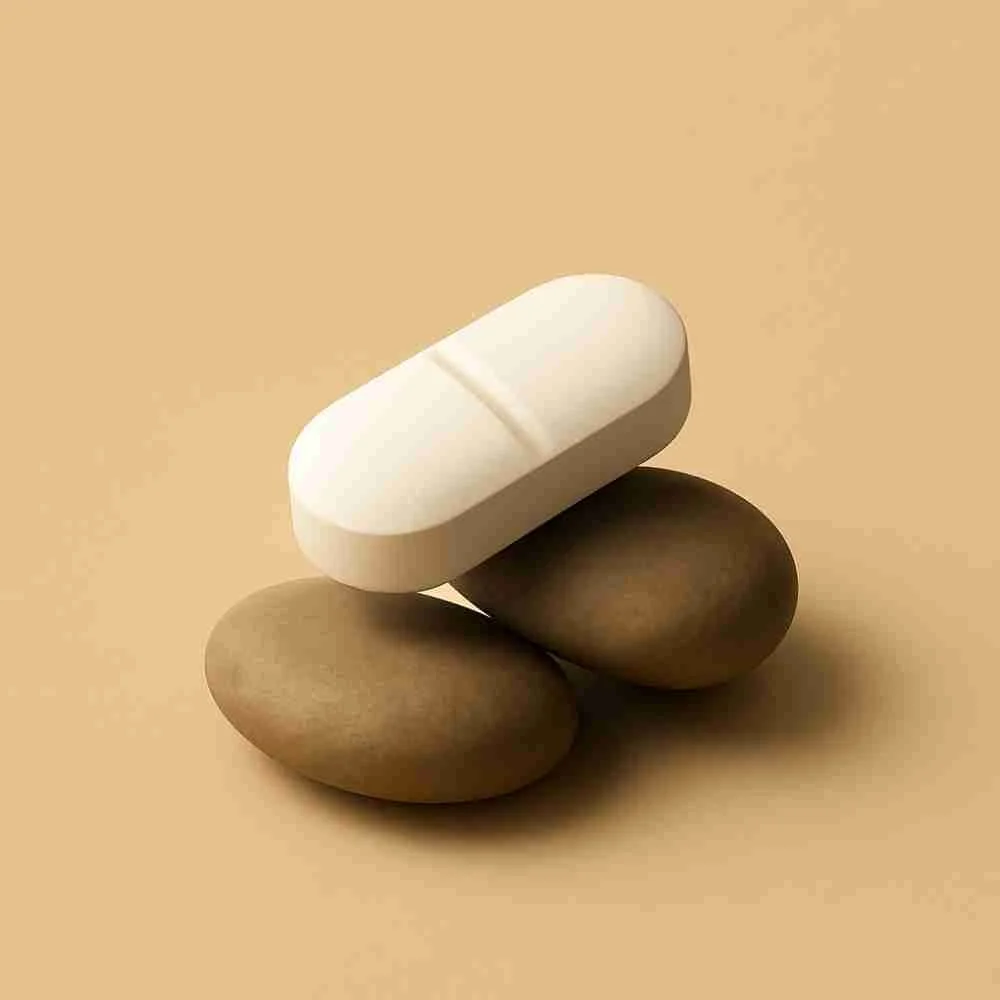Weight loss pills in the UK
Get clear guidance on today’s approved tablets and tomorrow’s weight loss pills. No jargon. No hype. Just science checked by UK doctors.
Why some people prefer pills over injections
Convenience in everyday life
Popping a tablet once a day fits easily into a classroom, lecture hall or office schedule. You don’t need to carry syringes, so your routine stays intact.Freedom from needle anxiety
About 1 in 4 UK adults feel faint or worried around needles¹. If that sounds like you, pills remove a major barrier to weight loss medication.No sharps or fridge hassles
Tablets avoid the fuss of sharps bins, travel ice packs or disposal rules that come with injectable pens. That means no extra kit cluttering your house.Zero injection-site soreness
Because nothing pierces the skin, you skip the risk of bruises or itching around your stomach or thigh, so sticking to treatment may be easier.Approved weight loss tablets available today
One oral medicine is already authorised by the NHS for certain adults with a high BMI.
It works by blocking some dietary fat from being absorbed and is usually taken with main meals².
Who may be offered it? Adults with a BMI that meets NHS criteria after trying diet and activity changes.
Common considerations. Sticking to a lower-fat diet helps limit side-effects like oily stools.
Learn more. See our quick guide to approved fat-blocking weight loss pills.
Information is for education only. Treatment decisions rest with a qualified prescriber.
Next-generation pills
Scientists are testing daily tablets that copy gut hormones involved in appetite control. Early studies show promising weight loss results, but these products have not yet been licensed in the UK.
Ongoing trials are measuring long-term safety and benefits.
If results stay positive, regulators may review the data in the coming years.
Weight loss pill FAQs
What is the strongest weight loss prescription pill?
There isn’t a single “strongest” pill that fits everyone. Clinical studies show that injectable medicines generally give the largest weight loss numbers, but they involve needles, not tablets. Among pills, the only medicine currently licensed on the NHS blocks some fat from meals and can help people lose around 5-10% of their starting weight when paired with diet and activity³. New tablets are still in research, so any headline claims online should be treated with caution. The “strongest” option for you is the one a prescriber judges safe, effective and sustainable for your health history.Do weight loss pills work?
They can if you also work on eating habits, exercise and sleep. Trials show prescription tablets can help you lose more weight compared with lifestyle changes alone. The numbers vary because everyone’s body, motivation and starting weight differ. Think of pills as a booster rather than a stand-alone fix. Skipping healthy food or staying sedentary usually wipes out the benefit.Are weight loss pills safe?
All medicines go through safety checks before they reach patients, but none are risk-free. The licensed fat-blocking tablet often causes oily stools if you eat high-fat meals, while hormone-style pills under study can trigger nausea or loose bowels. Serious reactions are uncommon but possible. Always read the patient information leaflet, tell your prescriber about every medicine and supplement you take, and report side effects to your prescriber.Can doctors prescribe weight loss pills?
Yes, if you meet specific criteria. A GP or obesity specialist can prescribe the licensed fat-blocking tablet on the NHS when your BMI and health risks are high enough. They may also discuss private options, but only after weighing evidence, supply and cost. No legitimate prescriber will hand out pills without a full medical assessment.How to ask your doctor for weight loss pills
Book a routine appointment so there’s time to talk.Bring a record of your weight history, current medicines and any long-term conditions you may have.Explain what you’ve tried (diet changes, exercise, sleep habits) and where you still struggle.Discuss benefits and risks openly. Be ready for your doctor to recommend lifestyle steps first or suggest referral to a weight management service.
How do weight loss pills work?
Licensed and experimental tablets work in two main ways:Block fat absorption. Some medicines latch onto digestive enzymes so about a third of the fat you eat passes out instead of being stored.Mimic gut hormones. Upcoming pills copy signals like GLP-1, which tell your brain you’re full, slow stomach emptying and help steady blood-sugar levels.
Medically reviewed by Dr Jackir Hussain
This page was last medically reviewed by Dr Jackir Hussain on 14 July 2025.
At Pill Scout, we prioritise accurate, evidence-based health information you can trust.
Our medical team regularly reviews and updates our content to ensure it stays aligned with the latest clinical research and guidance.
Dr Jackir Hussain, MBChB, MRCGP
GMC: 7074207
Dr Jackir Hussain is a UK-based GP with over 14 years of clinical experience since earning his medical degree from the University of Manchester. He has worked across diverse healthcare environments, including NHS GP surgeries, urgent care services, homeless shelters, and telemedicine platforms.
His areas of interest include general practice, weight loss, and the use of digital health to improve patient access to care.
Sources
¹ Based on a 2021 Oxford study of 15,014 UK adults (26% screened positive for blood-injection-injury phobia).² NHS. Obesity treatment. Updated February 2023.
³ Patient.info. Orlistat: weight loss medicine. Last reviewed June 2024.
Sign up for trusted updates
Be the first to hear when new weight loss tablets are reviewed by UK regulators.







